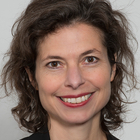Federal Conference on Municipal Development Policy
Municipalities are Shaping the Future
Dick, Eva / Paul Marschall / Christopher WingensThe Current Column (2021)
Bonn: German Development Institute / Deutsches Institut für Entwicklungspolitik (DIE), The Current Column of 14 June 2021
Cities, municipalities and districts in Germany are becoming increasingly involved in promoting the 2030 Agenda. This is a welcome trend, given that most of the Sustainable Development Goals (SDGs) can only be achieved together with local stakeholders. Global challenges are generally overcome at local level, and this is the starting point for the 15th German Federal Conference on Municipal Development Policy (Buko), which is being held online from 14 to 16 June 2021 under the heading “Together. Fair. Global. Sustainable. Agenda 2030 – Municipalities are Shaping the Future”. The programme covers a comprehensive range of topics, from municipal climate change mitigation and environmental conservation to sustainable procurement and migration and integration work.
But how exactly and to what extent do German local authorities promote development policy? Is there a discernible trend here? What motivates local authorities and how can existing work be stepped up further? The German Development Institute / Deutsches Institut für Entwicklungspolitik (DIE) set out to answer these questions in its study on ‘Municipal development policy in Germany’. Financed by the Service Agency Communities in One World (SKEW) of Engagement Global, the study serves as an update to a previous study on municipal development policy conducted by DIE in 2009.
As part of the current study, the results of which will also be presented at the Buko, the DIE team conducted a survey of over 5,000 local authorities throughout Germany and some 30 qualitative, in-depth interviews with local authorities and representatives of institutions at national and federal-state level. For data collection purposes, DIE worked closely with the German Institute for Development Evaluation (DEval), which also evaluates local development policy in Germany.
Local development policy is becoming more diverse
The development policy activities of local authorities are becoming progressively more diverse than they were in 2009. Many cities are conducting projects in several areas of activity, a number of them within international networks such as the Climate Alliance and the Mayors for Peace. Data collection revealed that the area of activity of “fair trade” is especially significant. Many administrations have set themselves the goal of achieving sustainable local procurement and are linking public contracts in areas such as catering to social and environmental criteria. Numerous local authorities (737 in June 2021) are also Fairtrade-Towns and have made political decisions on this topic.
Municipal partnerships are the second most common area of activity and the topic area within which the most political decisions are taken. Some local authorities are engaged in long-standing partnerships in which the administrations of both parties engage in dialogue on sustainable public services. This results in both parties learning lessons. Partnerships are especially attractive to local authorities in terms of cultural exchange and image building. The same applies to administrative staff who are interested in working beyond their local context.
Local authorities cooperate with many stakeholders from the German Federal Government, federal states and (other) local authorities. Alliances with other cities and municipalities are particularly important for smaller local authorities with limited resources. Civil society and its voluntary activities constitute a key pillar and, in some cases, a pre-requisite for development activities. Migrant organisations also play a vital role. Municipal enterprises are increasingly contributing to technology-intensive dialogue processes, for instance, as part of climate partnerships.
Local authorities recognise their global responsibility
German local authorities are recognising the relevance of global topics increasingly clearly, for instance in connection with race-based violence and due to being affected themselves by extreme weather events caused by climate change, such as more frequent droughts. It is not least against this backdrop that many of them have developed SDG plans in recent years and are tracking their goal achievement. Additionally, civil society stakeholders in many German local authorities are calling on those authorities to take on global responsibility.
Funding is needed and must be expanded
While local authorities are increasing their commitment to global sustainability, they often lack personnel and finance for development policy, which is one of their voluntary areas of responsibility. Consequently, external funding is and will remain of central importance. SKEW is considered by local authorities active in development policy to be the most relevant funding institution. The number of projects funded and conducted by the agency has significantly increased in recent years. At the same time, small-scale funding for project and staff resources remains important, as it affords greater flexibility to smaller local authorities and facilitates their involvement in the sector.



